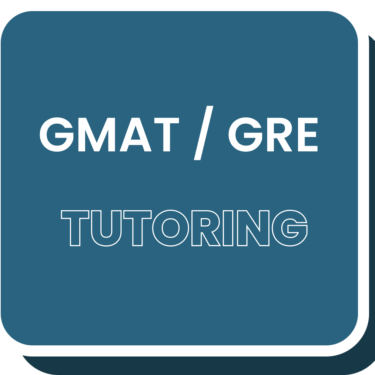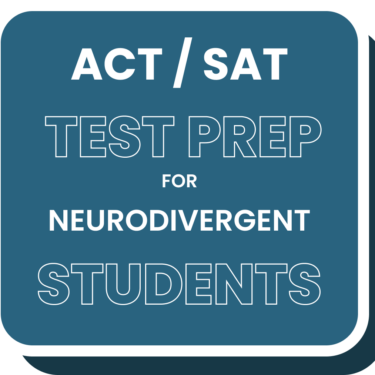Description
What are executive function skills and why do they matter?
When we hear “executive skills”, we may think of skills related to being the executive of a company: organization, time management, and planning/prioritization. Executive skills are necessary for all humans, not just CEOs, but our executive function skills are pretty much the “CEO” of our brain: they dictate our ability to organize, manage time, and plan, among several other executive functions. Below is a list of executive functions along with examples of how a teenager with strengths (left) or weaknesses (right) may exhibit these functions.
| Strengths | Executive Function | Weaknesses |
| Some kids think about what might happen before they act. | Response Inhibition | Other kids act without thinking. |
| Some kids keep track of their belongings and remember the tasks they need to accomplish. | Working Memory | Other kids misplace their belongings a lot and forget about their tasks (“I’ll do it later”). |
| Some kids can stay cool no matter what the irritation. | Emotional Control | Other kids have a short fuse and get easily frustrated even by little things. |
| Some kids “go with the flow” and easily adjust to changes in plans. | Flexibility | Other kids are thrown for a loop when an unexpected change happens. |
| Some kids stick with their homework or chores until they are done. | Sustained Attention | Other kids start assignments or chores but run out of steam and won’t finish them unless someone is on their case. |
| Some kids get started on assignments right away – they are able to put aside fun stuff to do the assignment. | Task Initiation | Other kids put off assignments as long as possible – they have trouble pulling themselves away from fun things. |
| Some kids are great at figuring out the steps needed to do a project and putting those steps in the correct order. | Planning & Prioritizing | Other kids have trouble seeing the big picture: they don’t know what to do or where to start and struggle to understand priorities with tasks. |
| Some kids easily keep their belongings and rooms clean and organized. | Organization | Other kids can’t find their belongs and never clean their rooms unless someone forces them to do it. |
| Some kids are great at estimating how much time is needed to do something or to get somewhere on time. | Time management | Other kids have no idea how long it takes to do something or to get from one place to another – these kids are often chronically late. |
| Some kids have one eye on the future and how to get there – these kids will set aside fun stuff to achieve long-term goals. | Goal-directed persistence | Other kids take life one day at a time or live by the motto “you’re only young once” – these students are not overly concerned about the future after high school. |
| Some kids are good at stepping back and seeing the “whole picture” and can sense how others react to their behavior or ideas. | Metacognition | Other kids get lost in details and miss the big picture – they may focus on getting their point across and miss feedback from others. |
Does this sound like your teen?
If you feel yourself relating to the right column more than the left, it’s possible that your student may be struggling with one or more executive function skills. Executive functioning skill deficits can be hard to identify, especially since they can often seem like a product of a lack of interest. If a teen isn’t cleaning her room, it may seem as though she doesn’t care or just doesn’t feel like doing it. The more likely reason is that her executive functioning skills are weak.
Teens struggle with executive skills because the structures in their brain that are responsible for these functions are weak or underdeveloped. Much like strengthening a muscle group, this requires training, consistent practice, and commitment.
What is Executive Function Coaching?
Mindfish’s executive function coaching aims to set goals with both the parent and student, then work consistently with the student to make daily plans to work toward their goals. We recommend that EF students start with our Initial Consultation and Planning program:
Executive Function Consultation and Planning
Meeting 1
A meeting with student, parent, and coach to discuss and assess the student’s executive function skills. This meeting involves discussion, interviews, and written assessments for both the student and the parent. By the end of the meeting, the coach will have a clear assessment of the student’s executive functioning skills and be able to identify goals for the student moving forward.
Meeting 2
First, there will be a meeting between the student and coach to identify which goals to start working on and develop an initial plan. Then, the student will meet with their coach frequently for short meetings to help keep track of progress, adjust the plan as needed, and ask questions or receive feedback.
Examples of EF Coaching for School and Beyond
Strong executive skills can help our teenagers both in and out of school. Below are some examples of how executive functions affect various aspects of a teen’s life and how an executive functioning coach can help teens improve in these areas.
Good Grades
In order to maintain good grades, students need to have strong skills in working memory, sustained attention, planning/prioritization, organization, time management, task initiation, and a few other executive functions. Strong executive skills are vital for good note taking, management of tasks and assignments, initiating studying, and excelling academically. School skills, like solving math problems, critical reading, and writing composition, depend heavily on executive functions. If a student is struggling with any of these functions, they may struggle with managing school assignments and the skills involved in those assignments as well. An EF coach can help the student identify the most critical skills to work on first and develop systems and strategies to strengthen those skills.
School Projects
Task initiation, working memory, planning/prioritizing, organization, time management, and goal-directed persistence all contribute to effectively completing school projects and avoiding night-before-the-deadline panic. An EF coach can help students with weaknesses in these skill areas develop project plans and timelines, create external cues, and adjust plans when things go awry.
Keeping Track of Belongings
We all know the student who can never find their homework, has a bag full of crinkled papers, and loses their phone every week. Keeping track of homework, school books, phone, keys, and extra curricular equipment pulls on several executive functions, including working memory, organization, and planning/prioritizing. An EF coach can help this student design organizational systems, create checklists and routines, and learn how to go through this process individually when they get new things to keep track of.
Planning for After High School
Teens with weaknesses in response inhibition and goal-directed persistence may have trouble planning for after high school. These students often take a “I’ll handle it when I get there” attitude and choose short-term fun over long-term progress towards goals. This attitude can also lead to some major stumbles in the transition to college. An EF coach can help these students set goals and understand the long-term big picture. Over time, the student will learn to connect their current actions to their long-term goals.
Transition to College
The transition to college can display executive skill deficits, even in students that did not struggle with executive functioning in high school. Moving out of the house means losing any executive function support provided by parents and any existing routines and strategies that compensated for executive skill functions. An EF coach can help a student identify what some of these existing supports are and smooth the transition into college by developing strategies that they can take with them to college.
Social Success
Teens that struggle with response inhibition, emotional control, and metacognition often blurt things out, lash out in anger, and struggle to see how their words and actions affect others. This can cause social – and eventually professional – problems. An EF coach can work with this student to develop alternative strategies, learn to read social cues, and use social cues as feedback in interactions.
Safe Driving
Safe driving requires strong response inhibition and emotional control to avoid giving into road rage or peer pressure from friends in the car, as well as strong sustained attention to maintain focus on the road. An EF coach can help the student (and their parents) develop systems to regulate their responses to external input while driving and set and track goals for focus while driving.
In each of these cases, the EF coach is helping the student design systems and cues to compensate for their executive skill deficit. Over time, the student will use and create these systems independently with less and less input from the coach. Executive function coaching helps the student become familiar with their executive function skill deficits and learn how to create systems that will help them develop those skills.





